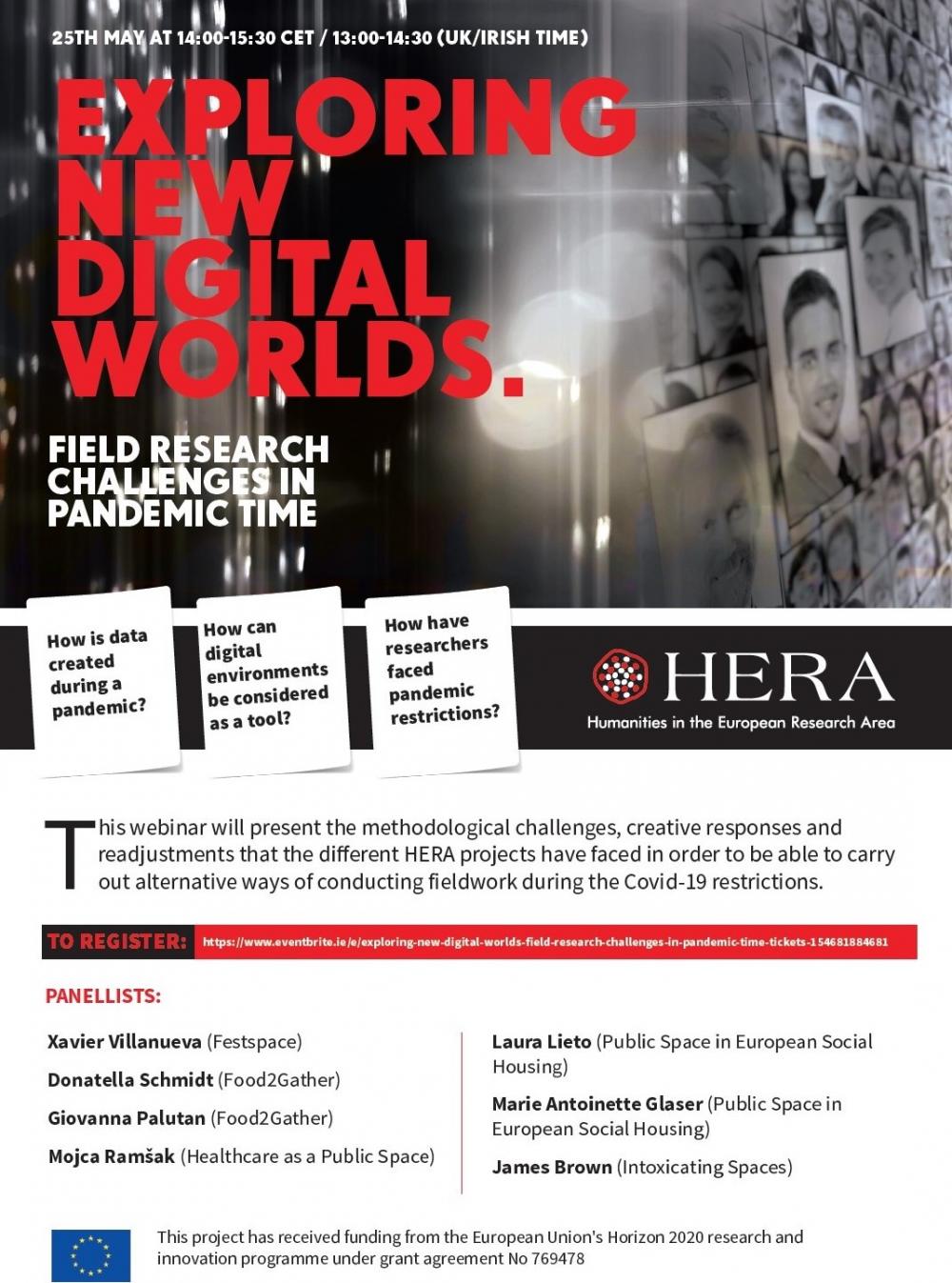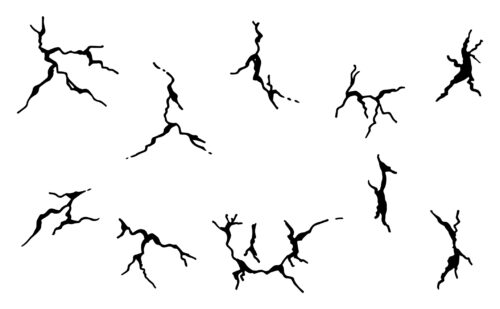WEBINAR – Exploring new digital worlds. Field research challenges in pandemic time (VIDEO)
Posted: 14 May, 2021

Recording of the HERA webinar hosted by researchers and early career researchers from HERA JRP Public Spaces projects
With a great pleasure, we organised HERA webinar on 25th May hosted by researchers and early career researchers from HERA JRP Public Spaces projects: FESTSPACE, Healthcare as a Public Space, Food2Gather, Public Space in European Social Housing and Intoxicating Spaces.
Covid-19 restrictions in most European countries have deeply affected our lives, and the use of public space, forcing us to rephrase and readjust social activities and especially field research as traditionally intended. This webinar will present the methodological challenges, creative responses and readjustments that the different HERA projects have faced in order to be able to carry out alternative ways of conducting fieldwork. We will explore and share questions and answers emerging from empirical research addressing the following themes: How is data created during a pandemic? How can digital environments be considered as a tool? How do we build trust with our partners and the subjects of our enquiry? How have researchers faced pandemic restrictions in terms of problems and opportunities?
FESTSPACE: Readjustments in Barcelona’s research project have implied a move from the pre-Covid in-place ethnographies to new approaches. The latter implied the develoment of a database on Barcelona cultural events, geographical maps representing cultural events distribution, and digital fieldwork based on 12 instead of two case-studies.
Healthcare as a Public Space (HcPubS):Health care, understood as a medical space, is seen as an example of a public space that models processes of social integration and social justice. Various barriers of access to health services will be explored before and during the pandemic raising crucial questions on the impact of technology based interactions on vulnerable populations and the response of overburdened health workers.
Food2Gather: Refugees’ informal encampments in the city of Rome: Given the necessity of rephrasing part of the project by resorting on digital domains, we feel the need to raise crucial questions such as: what kind of connections can be highlighted between the online and offline environment of the research? How can digital devices allow all subjects involved to be active part in the construction of relations? How can food be shared in a context where the physical presence is substituted by the digital presence?
Public Space in European Social Housing (PuSH):Doing fieldwork with vulnerable communities: The focus will be on empirical research and social distancing, emphasizing both limitations and opportunities spurred by digital technologies in use within vulnerable communities.
Intoxicating Spaces (PSPR):The presentation will explore the virtual exhibition created by the Intoxicating Spaces project, and how it has adapted to the pandemic. Organised around the concept of digital scrapbooking, the resource showcases a variety of textual, visual, and material sources relating to the introduction of coffee, opium, sugar, tea, and tobacco in four port cities. With access to archival spaces severely restricted by lockdowns, the resource has pivoted towards federating and adding value to existing online resources. The talk will also reflect on the challenges and opportunities on ‘scrapping in a time of plague.
Panellists:
Xavier Villanueva (FESTSPACE)
Donatella Schmidt (Food2Gather)
Giovanna Palutan (Food2Gather)
Mojca Ramšak (Healthcare as a Public Space)
Laura Lieto (Public Space in European Social Housing)
Marie Antoinette Glaser (Public Space in European Social Housing)
James Brown (Intoxicating Spaces)
-
-
-

16 November, 2022
Project of the Month: ViCTOR-E

